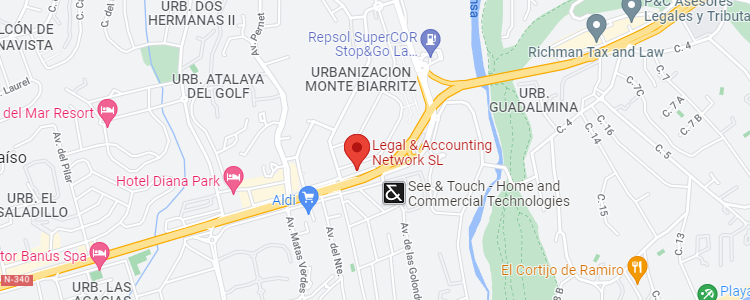We are qualified tax advisors in Marbella and Estepona with over 20 years’ experience handling fiscal matters in Spain
At Legal & Accounting Network, our conveyancing solicitors have over 20 years’ experience providing expert advice on the process of buying, selling or inheriting property in Spain.
Based in Estepona, a short drive from Marbella, we have expertise dealing with real estate on the Costa del Sol and in the province of Malaga, and will be able to guide you through the entire process of buying or selling your property and take care of all the required documentation.
Our fiscal department will also be able to ensure you comply with your tax liabilities involved in the operation, or take care of your future tax returns as property owners in Spain.



